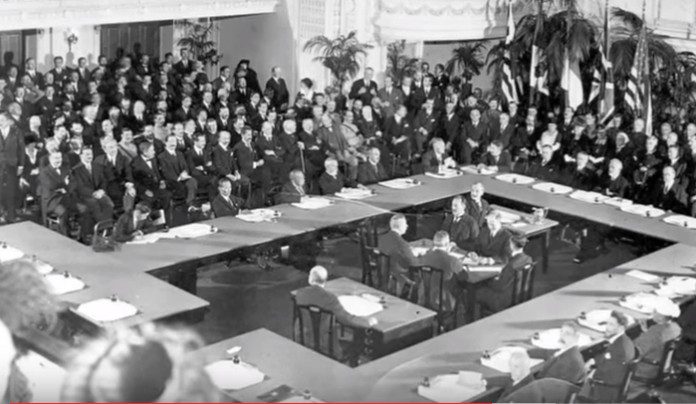Registered in October 1918 and signed in June 1919, the Treaty of Versailles put an end to World War I between Germany and the Allied Powers. Among the many provisions include in this peace treaty, the most controversial was the part where Germany and her allies where made to admit their responsibility for the war and its damages. This treaty did not escape the observations of two opposing sides. Proponents claim that Germany should pay the victims while opponents argue that this was too harsh. Here, we will discuss the arguments of both parties.
List of Pros of the Treaty of Versailles
1. Military Restrictions on Germany
With the signing of the treaty, the power of Germany to wage into another war and to inflict damage and war in the future was curtailed. Germany has been disarmed and made to reduce the number of its soldiers and just have an army of 100,000 men and no more than this for seven infantries and three cavalry divisions. Moreover, this led to division and support unit organization wherein the General Staff was dissolved. The treaty basically prevented Germany from having a large number of people in the military.
2. Payment for Reparations
Supporters of the Treaty of Versailles say that this peace treaty made Germany give compensation to the victims of war and the damages it has brought to the countries it occupied. As part of the treaty, Germany was made to pay some of the countries the amount of 132 million Marks or about $31.4 billion in 1921. This is approximately $442 billion in today’s rate.
3. Peace and Territorial Concessions
Even after World War I ended, fear still loomed among countries on the outbreak of yet another war. Fortunately, the signing of the treaty ended the war which assured the people that there is no threat of another war. This also forced Germany to give up its territories and give back the liberty to the countries it has invaded.
List of Cons of the Treaty of Versailles
1.Too Harsh on Germany
Critics of the treaty claim that the punishment given to Germany and its allies was too much and that the reparation figure was too high. They argue that requiring Germany and the countries that supported the Germans to invade territories to accept full responsibility on the war was also over the top.
2. Reparation Not Imposed
Opponents of the Treaty of Versailles say that the treaty did not have the teeth, so to speak, since it took more than 10 years of negotiations on the reparation payments Germany and its allies has to pay. And to make matters worse, in 1932, an indefinite postponement on the reparations to be made was granted to Germany.
3. Germany Targeted
According to those who were not convinced by the treaty, the Allied Powers pressured Germany to concede and follow whatever the articles the Treaty of Versailles required. Also, despite other countries that worked alongside Germany, the focus of the punishment and reparation was solely on Germany.
World War I was a part of history that was sad and damaging. The Treaty of Versailles was signed to somehow rectify the mistakes that have been committed. However, it was not without flaws. To somehow balance the arguments, knowing the treaty’s pros and cons is essential.
Crystal Lombardo is a contributing editor for Vision Launch. Crystal is a seasoned writer and researcher with over 10 years of experience. She has been an editor of three popular blogs that each have had over 500,000 monthly readers.


















